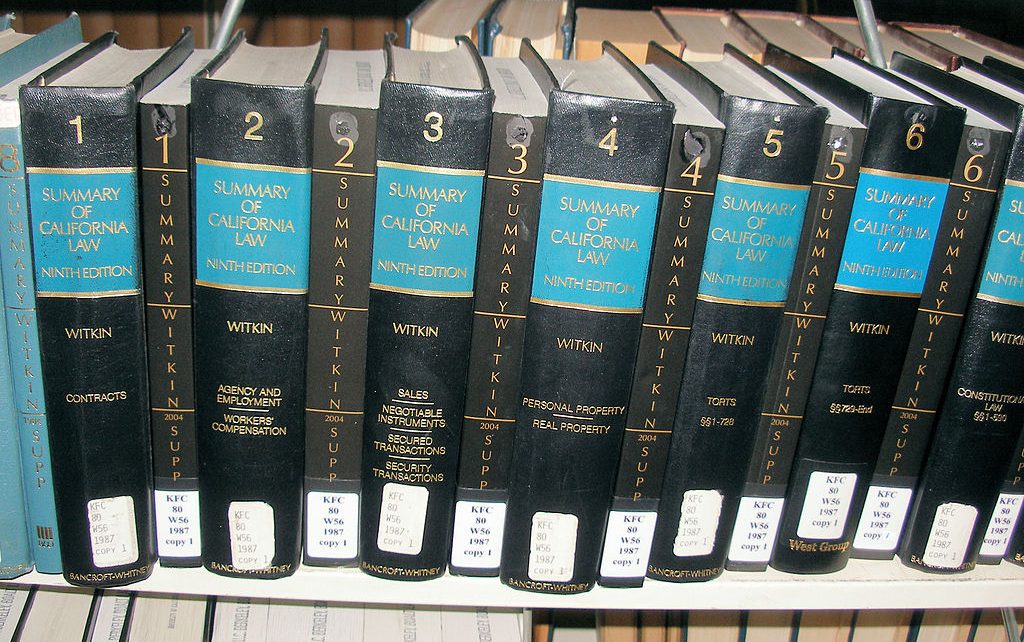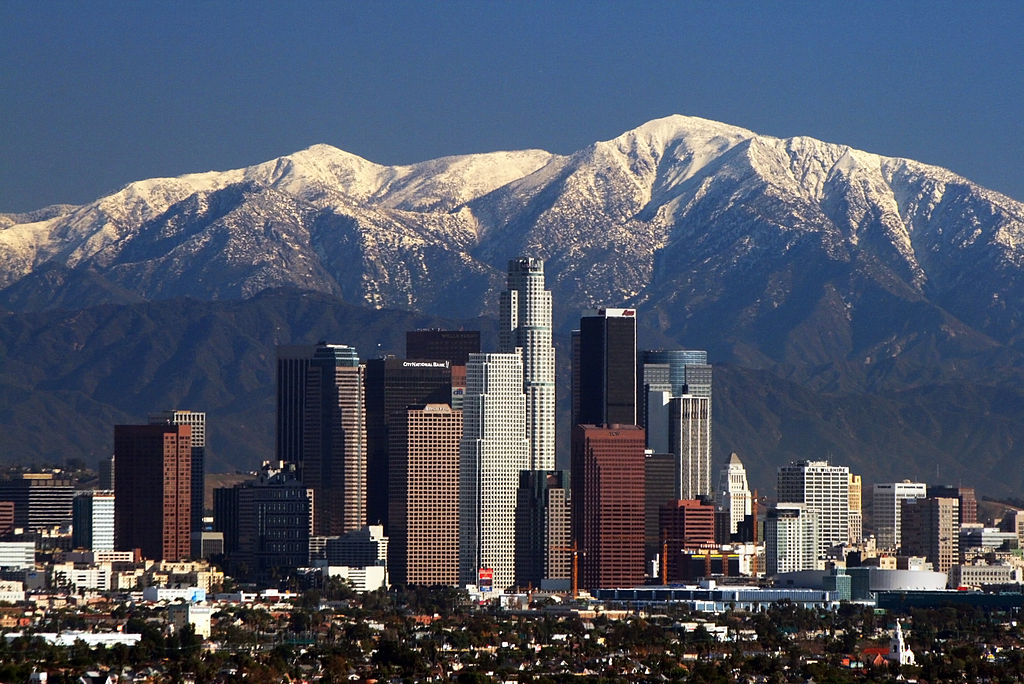
Summary of California Law books. (Photo: Wikipedia)
General Law City Elections in California
A general law city elects members of the city’s legislative body by districts or from districts
By Chris Micheli, February 12, 2022 3:32 pm
California’s Elections Code provides a number of laws related to city elections in General Law Cities. These are contained in Division 21, Chapter 7, Article 1. Section 21600 specifies that Article 1 applies to a general law city that elects members of the city’s legislative body by districts or from districts.
Section 21601 provides that, following a city’s decision to elect its council using district-based elections, or following each federal decennial census for a city whose council is already elected using district-based elections, the council is required to adopt by ordinance or resolution the boundaries for all of the council districts of the city so that the council districts are substantially equal in population as required by the United States Constitution.
The council is required to adopt council district boundaries that comply with the United States Constitution, the California Constitution, and the federal Voting Rights Act of 1965. In addition, the council must adopt district boundaries using specified criteria. Moreover, the council is prohibited from adopting council district boundaries for the purpose of favoring or discriminating against a political party.
Section 21602 provides, for redistricting occurring in 2031 and thereafter, the boundaries of the council districts must be adopted by the council not later than 205 days before the city’s next regular election occurring after January 1 in each year ending in the number two. However, this section does not apply when a city transitions from at-large to district-based elections.
Section 21603 states, if the boundaries of a city expand by the addition of new territory, including through annexation of unincorporated territory or consolidation with another city, the council must add that new territory to the nearest existing council district without changing the boundaries of other council district boundaries.
Section 21605 specifies that, after redistricting or districting, a council is prohibited from adopting new council district boundaries until after the next federal decennial census, except under specified circumstances.
Section 21606 provides the term of office of any council member who has been elected and whose term of office has not expired cannot be affected by any change in the boundaries of the district from which the council member was elected.
Section 21607 specifies that, before adopting the boundaries of a council, or for any other reason, the council is required to hold public hearings on the proposal, but this section does not apply when a city transitions from at-large to district-based elections.
Section 21607.1 provides that, before adopting a final map, the council must hold at least four public hearings at which the public is invited to provide input regarding the composition of one or more council districts.
Section 21608 requires the council to take steps to encourage residents, including those in underrepresented communities and non-English speaking communities, to participate in the redistricting public review process. These steps must include specified, good faith efforts.
In addition, a draft map must be published on the internet for at least seven days before being adopted as a final map by the council provided that, if there are fewer than 28 days until the deadline to adopt boundaries, the draft map may instead be published on the internet for at least three days. The council is required to allow the public to submit testimony or draft maps in writing and electronically.
Section 21609 states, if the council does not adopt council district boundaries by the deadlines set forth in law, the council is required to immediately petition the superior court in the county in which the city is located for an order adopting council district boundaries. If the council does not petition the superior court within five days after the deadline, any resident of the city may file that petition and be entitled to recover the resident’s reasonable attorney’s fees and costs from the city for doing so.
- Frequently Asked Questions about State Agency Ethics Training - April 26, 2024
- Frequently Asked Questions about When Elected Officials Take Office - April 25, 2024
- Frequently Asked Questions About Ethics Training for Local Agencies - April 24, 2024





2 thoughts on “General Law City Elections in California”